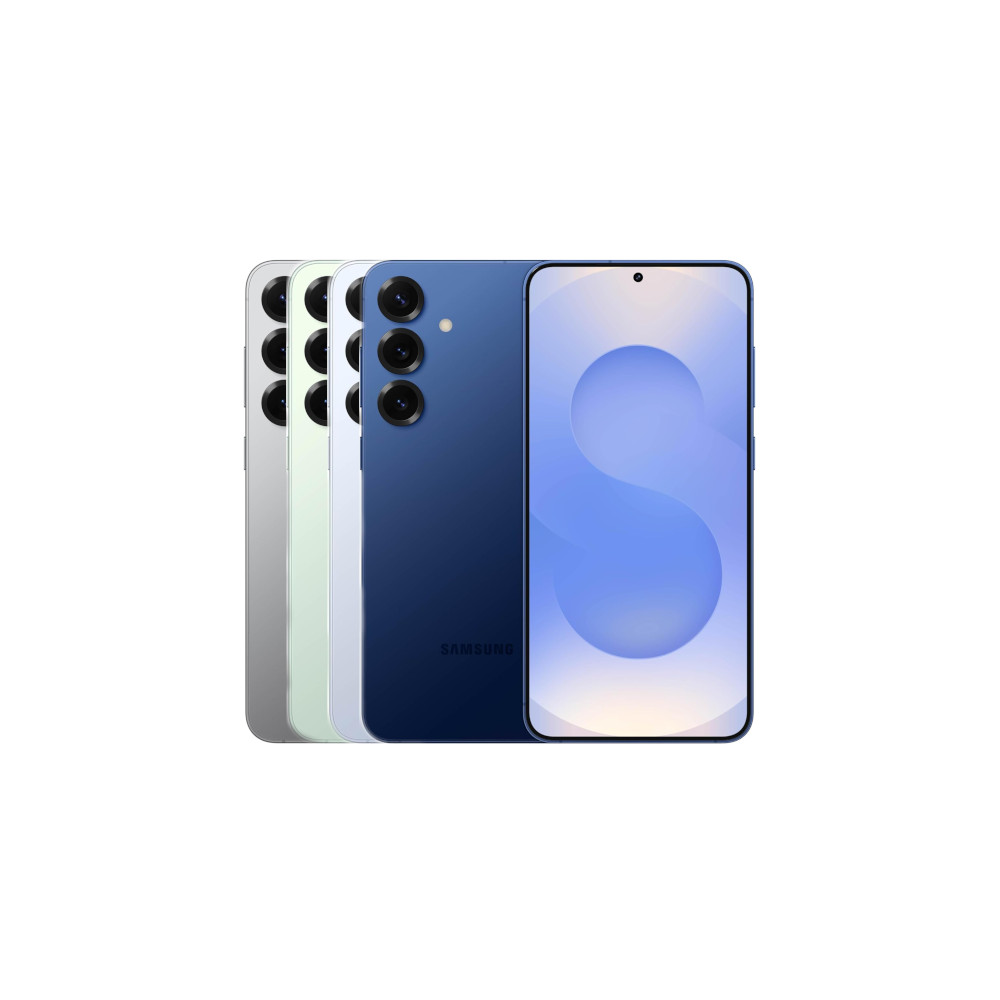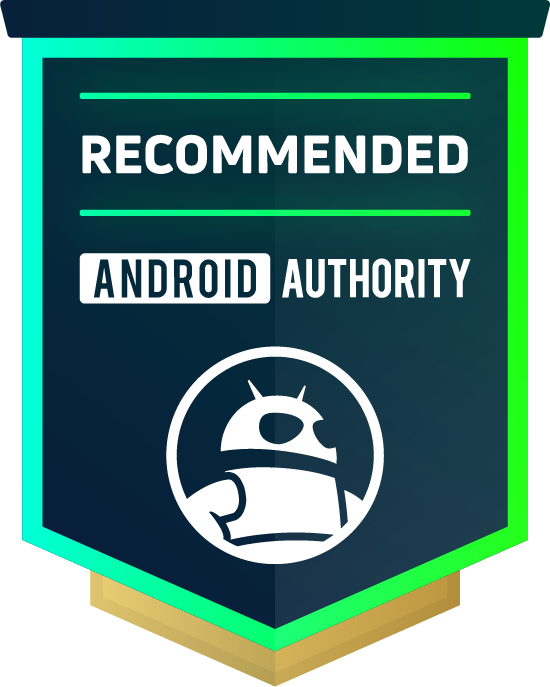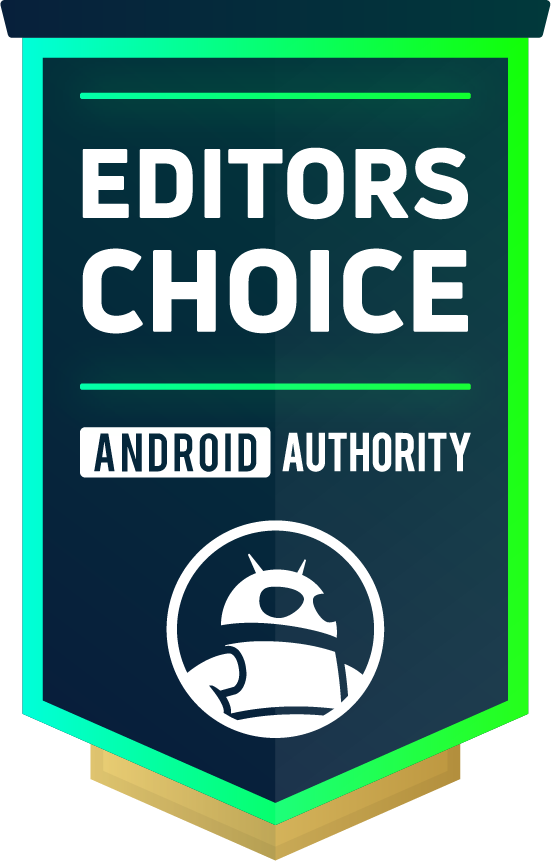Affiliate links on Android Authority may earn us a commission. Learn more.
What's the best Android phone? We tested hundreds, here's our top 5
March 19, 2025











The Android world is confusing, with lots of brands and models that can make it difficult to pick the right phone for you. To help, we’ve tested and reviewed hundreds of devices at Android Authority and picked out the best Android phones you can buy in 2025, starting with a device we think everyone will love.
If you’re not too familiar with smartphone tech, check out our detailed buyer’s guide below to learn what to look out for.
The best Android phone for most people is the Samsung Galaxy S25 Plus

The Samsung Galaxy S25 Plus is the best smartphone for most people. We’ve struggled to understand why it actually exists, largely because of its similarity to the Galaxy S24 Plus it replaces. If you own Samsung’s previous generation device, there’s no need to upgrade. However, we do feel that it’s the most balanced device of Samsung’s current flagship trio.
It might not be the flashiest on paper, but it strikes a satisfying balance between hardware, software, and value that’s difficult to ignore. Notably, the Galaxy S Plus has held this honor for four generations now, and we still think the Galaxy S22 Plus and Galaxy S23 Plus are good buys, too. However, the 2025 model brings just enough enhancements to win us over.
Which is your favorite smartphone brand?
While all Galaxy S25 phones have an array of excellent specs and fantastic cameras, the primary reason we think the Galaxy S25 Plus is the best option in Samsung’s 2025 flagship line is its value proposition. This model saw no price increases this year, includes the efficient and pacey Snapdragon 8 Elite for Galaxy chipset, and an extensive software policy on top of an already great phone. It’s also a good $200 cheaper than the Ultra.
What makes it stand out
- Versatile cameras: The Galaxy S25 Plus may not see many new camera features, but it uses a tried and trusted array.
- Premium design: It’s similar to its predecessors and siblings, but it’s a typically sane Samsung design.
- Solid performance: The Snapdragon 8 Elite for Galaxy is an exciting chipset that offers performance and efficiency when needed.
- Gorgeous display: The Galaxy S25 Plus has a beautiful display for productivity and pleasure.
- Software support: Samsung’s software support now measures up to Google’s finest, with updates through to 2032.
The best-value Android phone is the Google Pixel 9


Google’s base flagship once again makes our list, even if it continues to rise in price. Simply put, the Pixel 9 is one of those Android phones that just keeps getting better over time, allowing you to stretch your value even further after you’ve finished paying it off. Whereas the Pixel 8 felt like a way to introduce Gemini to the world, the Pixel 9 feels like it’s bringing the AI companion into its own.
The Pixel 9 once again launched with one of Google’s in-house Tensor chips, this time the Tensor G4, which continues to perform better while staying cooler than its predecessor. It’s still centered around machine learning and bringing Gemini into even more corners of the Pixel-verse, but it’s a plenty capable chip in day-to-day life. The Tensor G4 is powering an updated set of cameras, with a high-resolution 48MP ultrawide sensor taking the place of Google’s previous 12MP option. It’s a larger sensor with a wider maximum aperture, making the Pixel 9 even more capable in low light than before.
Mix in a continued seven years of Pixel updates, and the Pixel 9 will stay current long after you’re ready to upgrade.
What makes it stand out
- Value: The price is slightly higher than last year, but this phone will last a long time with seven years of updates.
- Excellent photos: The Pixel 9 is a great point-and-shoot camera, mostly thanks to the continued focus on image processing.
- Software smarts: Clever Pixel features like Magic Editor and AI call screening continue to grow and improve over time.
The best premium Android phone is the Galaxy S25 Ultra


The Pixel 9 might offer the best value, but if you want all the bells and whistles, we recommend the Galaxy S25 Ultra. Weighing in at over 218 grams, it strikes a stark shadow over the Galaxy S25 Plus with sharp edges but shaves plenty of weight from the outgoing model. It also packs a 6.8-inch flat display and an S Pen tucked away in its flank. Despite its simplified design this year, the stylus is still one of the core reasons to purchase the Ultra model, making jotting down notes a breeze.
So why is this not the best phone you can buy? Well, it probably is if all you care about is specs. But, it’s by no means the pragmatic choice. The Galaxy S25 Ultra will demand a massive premium over the S25 Plus, pushing it further into the $1,000 bracket. We don’t think its value proposition is as convincing as its smaller siblings. Considering the seven-year Android software promise, it’s still a viable long-term investment, though.
What makes it stand out
- Impressive design: The S25 Ultra has (almost) everything you could want shoved into a smartphone.
- Stellar performance: Wherever you buy it, the Snapdragon 8 Elite for Galaxy will push those pixels around for you.
- The best camera in the biz: An exciting camera lineup awaits those who value versatility.
The ROG Phone 9 Pro is the best Android phone for gaming


Phones marketed at gamers have always had some glaring omissions or unusual design choices, but the ROG Phone 9 Pro is a welcome exception. It’s not only capable as an everyday companion, but it brings new AI features to the table for a little more flexibility. The latest ROG Phone 9 Pro has rapidly become the best gaming phone you can buy, and it’s done so while escaping the typical pitfalls of niche gaming devices and becoming more like the ASUS Zenfone than ever before.
Perhaps the biggest feather in the ROG Phone 9 Pro’s cap is its power aplenty. If your heart is set on gaming, the Snapdragon 8 Elite chip is more than enough to grind you through titles like PUBG Mobile with an overpowered X-Mode that maxes out both the CPU and GPU. Oh, and ASUS’s latest gaming phone has a whopping 5,800mAh battery that’s brought impressive boosts to both web browsing and video playback in our controlled testing.
What makes it stand out
- One for the gamers: With tip-top performance and new AI features, this is the best gaming phone you can buy.
- Stellar battery life: A massive battery cell will keep this phone chugging for days (or several hours of intense gaming).
- Useful accessories: ASUS created an entire ecosystem of accessories for this phone, from controllers to coolers and more.
The smartest Android flagships are the Pixel 9 Pro and Pixel 9 Pro XL

Gorgeous display
Seven years of software updates

Excellent build quality
Flexible, capable cameras
Reliable update commitment
We’ve already extolled the virtues of the standard Google Pixel 9 above, but now it’s time for the Pixel 9 Pro series to get its time in the limelight. That’s right, there are now two Pixel 9 devices (well, three if you count the Pixel 9 Pro Fold). One of them, the Pixel 9 Pro XL, is Google’s largest and most expensive non-folding flagship, while the other, the Pixel 9 Pro, is the pocket-friendly Pro phone I’ve waited years for.
Since this is the first time Google has come up with two Pro-grade Pixels, I figure it’s easiest to cover their differences rather than similarities. The Pixel 9 Pro is obviously the smaller of the two, offering a flat 6.3-inch display to the XL’s flat 6.8-inch option. It has a slightly smaller battery and slightly slower charging but is actually not as picky about which USB PD PPS charger you plug it into.
Outside of those differences, the two Pixel 9 Pros are almost identical. They have the same trio of high-resolution cameras, pairing a 50MP primary sensor with 48MP telephoto and ultrawide sensors. As always, though, its the features that Google introduces as part of its years of Pixel updates that will make the Pixel 9 Pro series excellent.
What makes it stand out
- Versatile cameras: Google nails a great camera trifecta with improved resolutions and a telephoto lens to boot.
- Gorgeous screen: The Pixel 9 Pro and Pro XL have bright LTPO screens that run from 1 to 120Hz, saving battery life when viewing static images.
- Software smarts: No other smartphone can boast the breadth of software features found on Pixel smartphones, and the gap will only grow over seven years of updates.
Honorable mentions
While we’ve listed the best Android phones we’ve tested above, there are a few more options out there that might better suit your needs. Some are Europe-only, and others are just a bit too niche to earn a top spot on the list. Here are our honorable mentions:
- OnePlus 13 ($899.99 at OnePlus): The late 2024 OnePlus flagship is an excellent modern Android smartphone wrapped in a stylish body. It’s powered by the Snapdragon 8 Elite paired with a 6,000mAh battery and rapid charging. Its camera package is also stellar, pushing out reliable results in a multitude of conditions.
- Samsung Galaxy Z Flip 6 ($1099.99 at Samsung): Samsung’s Galaxy Z Flip line is among the easiest foldables to recommend, and the sixth iteration is the best to date. Its pocketable size and attractive design make it a great pick for most people, and after a few iterations of polish, there are now very few tradeoffs for the Flip’s clamshell-style foldable form factor.
- Samsung Galaxy Z Fold 6 ($1899.99 at Samsung): If you’re after a full-sized tablet, the Galaxy Z Fold 6 offers more screen, more power, and more accessories than its Flip sibling. It’s now on par with the Galaxy S series in terms of software support and AI features.
- ASUS Zenfone 10 ($614 at Amazon): If you want a small Android flagship, the Zenfone 10 is the best by far. It’s ready for one-handed use and doesn’t make any compromises in terms of battery life or performance.
- Google Pixel 8a ($499 at Amazon): Not everyone can afford to spend more than $800 on a phone, which is where this budget option comes in. It’s cheaper than the Pixel 8, but uses the same chipset and offers many of the same smarts.
- Samsung Galaxy S25 ($809.99 at Amazon): The Galaxy S25 isn’t as imposing as its larger siblings, but if you want a smaller Android phone, it’s an excellent pick. It shadows the Galaxy S25 Plus in several aspects, but settles for a smaller battery.
- Motorola Razr Plus (2024) ($799.99 at Amazon): Some might argue that Motorola, not Samsung, has the best flip phone in the US right now. The Razr Plus has an interesting wide and telephoto camera pairing, as well as the largest cover screen you’ll find on a flip phone right now.
- Google Pixel 9 Pro Fold ($1799 at Amazon): Google’s take on a foldable device is a little different from Samsung’s opting for a slightly wider overall design. The Pixel 9 Pro Fold even ditches the camera bar, shifting it into a square housing in the top corner.
- Samsung Galaxy S24 FE ($552.54 at Amazon): The Samsung Galaxy S24 FE is an all-around excellent mid-range device. It’s as close to Samsung’s flagship lineup as it has ever been, offering more balanced cameras and a better in-house Exynos chipset than previous generations.
- Nothing Phone 2 ($599.99 at Nothing): Nothing made some big improvements in its sophomore smartphone, and the Glyph on the back is still a big selling point. It’s also officially available in the US, making it a great device for anyone who wants a conversation starter.
- HONOR Magic 6 Pro (£1099.99 at Amazon): HONOR seriously stepped up its game with the Magic 6 Pro, and it can finally go toe-to-toe with Samsung and Apple. If you live in the UK or Europe, that is.
- Sony Xperia 1 VI ($1199 at Amazon): If you want hardware that spares no expense, the Xperia 1 VI is it. It finally gains a more flexible camera setup and improved battery life, making for the most practical Xperia flagship in several years — even if it’s tough to get in the US.
What we look for in the best Android phones
Here at Android Authority, we’ve reviewed hundreds of Android phones over the years, but you may have different criteria when selecting the device for you. Here’s a short list of things we consider during our time with each device so you can decide which ones are a priority.
Which smartphone manufacturer do you trust the most for software updates?
Price and value
Smartphones are now regularly pushing $1,000 or more, but spending more won’t always get you a better device. We look at price in relation to what a phone and its competitors offer, both from a hardware and software perspective. Obviously, in this particular list, we’re looking at the cream of the Android crop so you’ll find mostly flagship devices, but we’ve got a separate list for the best budget Android devices, too.
Performance
When we talk about performance, we’re mostly talking about a phone’s processor or system on a chip (SoC). At this point, even mid-range devices are capable of great everyday performance, but the latest Qualcomm powerhouses are necessary for smooth scrolling on speedy, high-resolution screens or getting the best framerates in demanding games. Other options, like Google’s Tensor, focus on machine learning to unlock things like better photo processing and real-time translation. Another thing we consider is RAM. We recommend at least 6GB of RAM for the best experience, with gains falling off after 12GB.
Cameras
For the best Android phones, we expect more than a single lens to provide more versatility in mobile photography. Megapixel counts play some role here in providing good detail, but nowadays, the biggest determining factor is software. Google has traditionally been the king of photo processing, but others like Samsung, Sony, and OPPO are also top performers. Check out our list of the best camera phones for the best of the best.
Connectivity
5G isn’t quite as ubiquitous as we’d like, but if you’re buying a new phone, we recommend devices with 5G to futureproof it as much as possible. It’s worth mentioning that there are a few flavors of 5G available: the speedy but short-range mmWave and the slightly less speedy sub-6GHz. Not all phones support mmWave, but unless you live in a major city in the US, odds are you don’t need it.
Build materials
Most premium Android phones are made of some combination of glass and metal, but they vary in how much protection they provide. Gorilla Glass Victus is significantly more resistant than Gorilla Glass 5, for example, although you’ll probably want to slap a case on it regardless. You should also keep in mind that foldable devices are particularly prone to damage, especially in the vulnerable hinge mechanism.
What about iPhones?
You’ve just finished reading about the best Android phones, so we have an idea of where you stand in the iOS vs Android debate. However, nothing is ever set in stone. If you have an iPad or maybe a MacBook, you might decide that it’s best to stick with Apple’s ecosystem. On the other hand, you might be ready to break free and tap into more customization options. You’ll face different app selections on both platforms, but it’s all about your comfort level.
For what it’s worth, the iPhone 16 series is Apple’s current gold standard, but its older models are still well worth considering.
FAQs
There are some specific options for seniors with simplified menus, or we recommend a Samsung device for its Easy Mode feature. You can also load up a launcher like Big Launcher to make menus and dialers more approachable.
We talk an awful lot about RAM every time we mention a smartphone, but how much RAM is enough? If you’re only covering the bare basics, you might be able to get away with 4GB, but 8GB is more appropriate if you have eyes on multitasking. Some heavy-duty gamers might even want 12GB or 16GB just to keep up with anything and everything.
Yes! Well, some of them. Most recent flagships are worth buying, even up to a year or two after release. This is especially true now that software support windows for modern Samsung and Google flagships span seven years. You can usually save a good amount of money at this point and still get good performance. At this point, we don’t recommend buying a 4G flagship, but most 5G flagships are still good to go.
This is a tricky one. If going by outright performance on Android phones, the Snapdragon 8 Elite series is the current benchmark. However, the 2024 crop of silicon, like the Snapdragon 8 Gen 3, Dimensity 9300, and Exynos 2400, remain stellar chipsets.